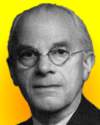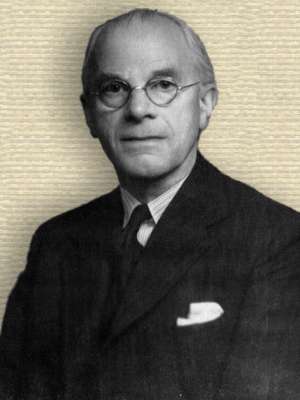 (source)
(source)
|
Herbert Dingle
(2 Aug 1890 - 4 Sep 1978)
English physicist and philosopher of science who created a controversy as he long pursued claims of inconsistency in Einstein’s Special Theory of Relativity. He was president of the Royal Astronomical Society for the period 1951-1953.
|
Science Quotes by Herbert Dingle (5 quotes)
A science in its infancy is the least satisfactory, and, at the same time, the most profitable theme for a general description.
— Herbert Dingle
In Modern Astrophysics (1924), Preface, v.
All advances in science consist either in enlarging the range of experience or in expressing the regularities found or to be found in it.
— Herbert Dingle
Presidential Address, Royal Astronomical Society, London (13 Feb 1953), 'On Science and Modern Cosmology', Monthly Notices of the Royal Astronomical Society (1953), 113, No. 3, 393.
It is ironical that, in the very field in which Science has claimed superiority to Theology, for example—in the abandoning of dogma and the granting of absolute freedom to criticism—the positions are now reversed. Science will not tolerate criticism of special relativity, while Theology talks freely about the death of God, religionless Christianity, and so on.
— Herbert Dingle
In 'Preface', Science at the Crossroads (1972), 13.
Our most trustworthy safeguard in making general statements on this question is imagination. If we can imagine the breaking of a law of physics then… it is in some degree an empirical law. With a purely rational law we could not conceive an alternative… This ultimate criterion serves as an anchor to keep us from drifting unduly in a perilous sea of thought.
— Herbert Dingle
From concluding paragraph of 'Transition to General Relativity', The Special Theory of Relativity (1940, 2014), Chap 8, 91.
What parts of the interior or the atmosphere give rise to the various phenomena, or indeed, if these regions have any parts at all, are questions which we ask of the stars in vain.
— Herbert Dingle
In Modern Astrophysics (1924), 182.

 In science it often happens that scientists say, 'You know that's a really good argument; my position is mistaken,' and then they would actually change their minds and you never hear that old view from them again. They really do it. It doesn't happen as often as it should, because scientists are human and change is sometimes painful. But it happens every day. I cannot recall the last time something like that happened in politics or religion.
(1987) --
In science it often happens that scientists say, 'You know that's a really good argument; my position is mistaken,' and then they would actually change their minds and you never hear that old view from them again. They really do it. It doesn't happen as often as it should, because scientists are human and change is sometimes painful. But it happens every day. I cannot recall the last time something like that happened in politics or religion.
(1987) -- 


